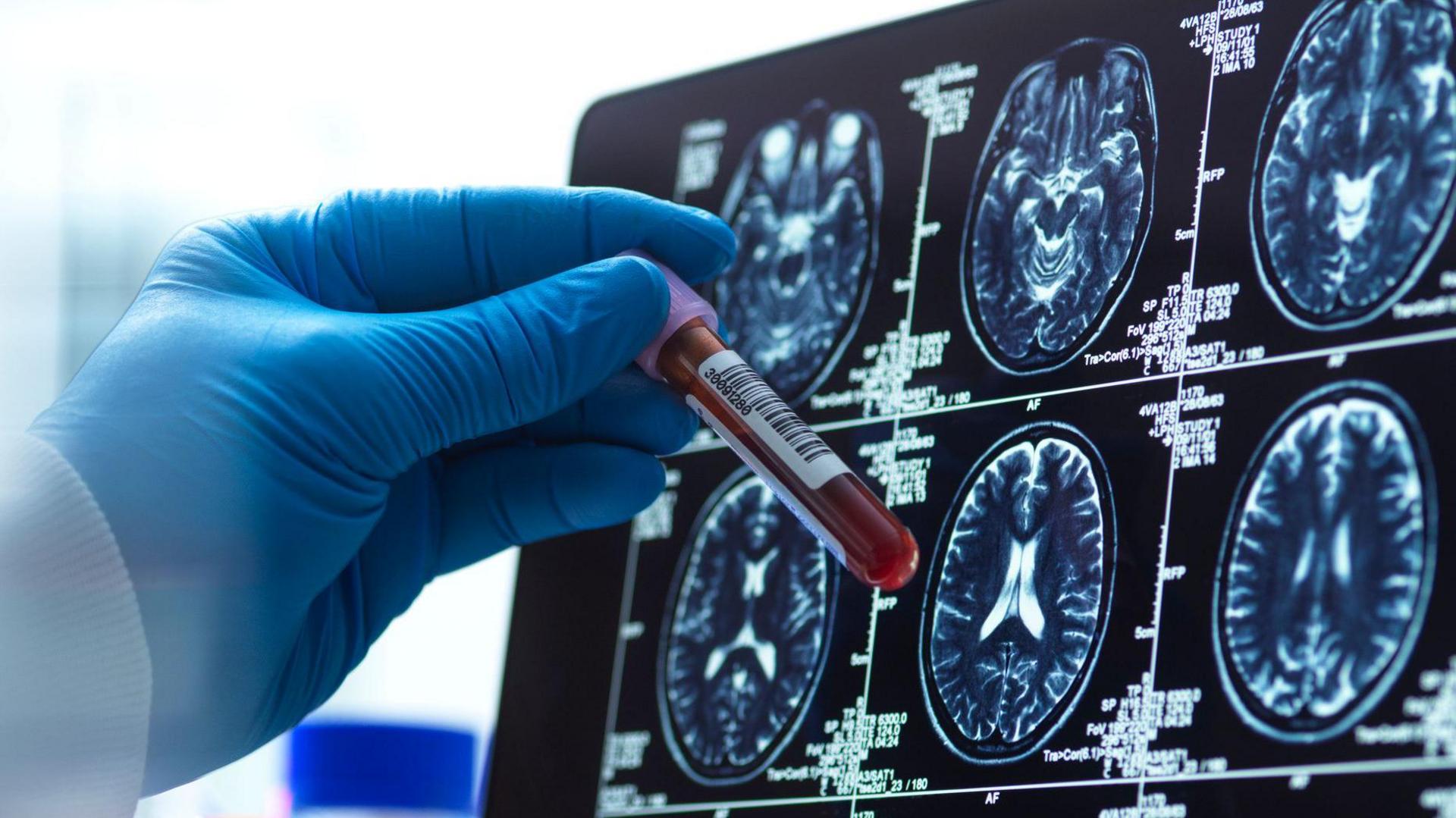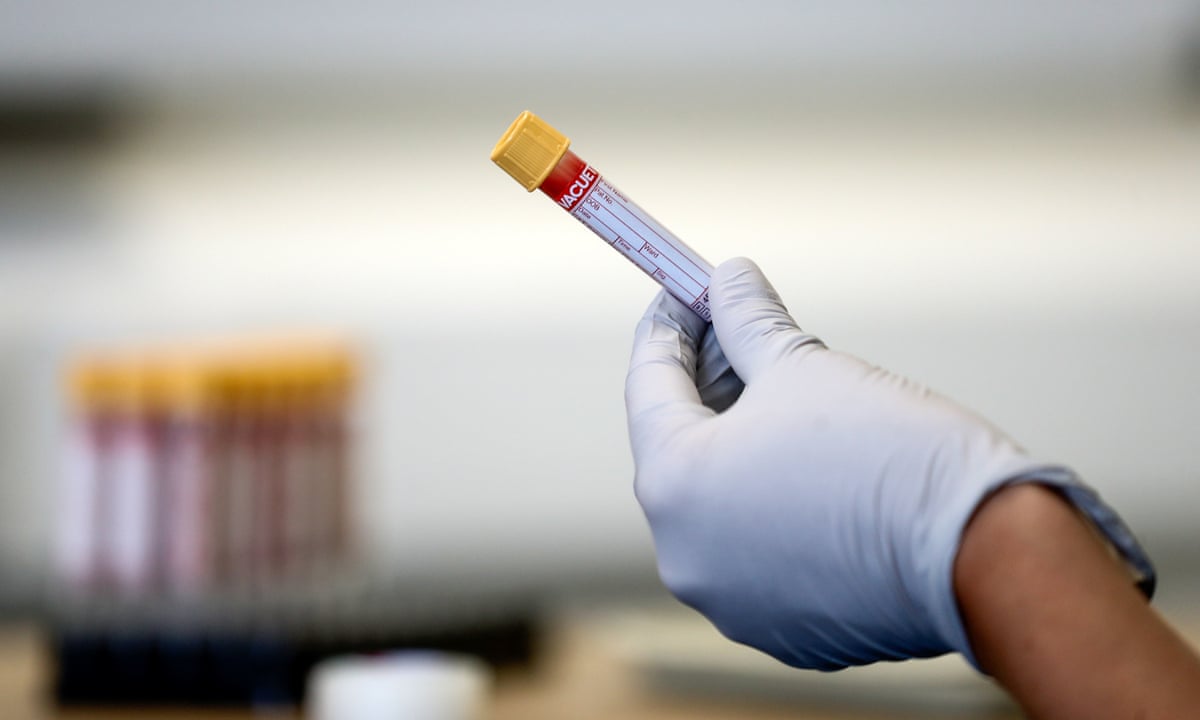Future of Medicine: Tiny Blood Test Could Revolutionize Disease Diagnosis!

A groundbreaking new diagnostic system, developed by researchers at Arizona State University, promises to revolutionize disease detection by offering rapid and affordable results. This unnamed blood test, which can also use saliva, utilizes a portable diagnostic system called NasRED (Nanoparticle-Supported Rapid Electronic Detection) to identify a wide range of health conditions in just 15 minutes and for only a few dollars.
Led by Dr. Chao Wang, an associate professor at Arizona State University and lead author of the study, the research addresses the skepticism surrounding rapid diagnostics following past industry failures. However, this new technology presents a credible and highly effective approach. The test's ability to provide quick diagnoses without expensive instruments makes it a potential game-changer for point-of-care scenarios, as highlighted by Dr. Amesh A. Adalja, a senior scholar at the Johns Hopkins Center for Health Security.

Photo Credit: BBC News
The mechanics of the test are intricate but effective. It employs specially engineered gold nanoparticles, coated with specific molecules tailored to detect minute quantities of disease-linked proteins. These coatings can include antibodies, which bind to proteins released by pathogens during infection, or antigens, which are fragments of viral or bacterial proteins. When mixed with a small bodily fluid sample, the presence of disease markers causes these nanoparticles to clump together and sink. Conversely, if no disease is present, the nanoparticles remain suspended.
The NasRED device then projects an LED light beam through the fluid. An electronic sensor measures how much light penetrates. Increased light passage indicates that nanoparticles have settled, signaling the presence of a disease or virus being tested for. This innovative detection method allows for swift and accurate results.
While the initial study confirmed its efficacy in diagnosing COVID-19, Dr. Wang emphasizes the technology's broad applicability. It can detect various infectious diseases, including other viral infections like Ebola and Dengue, Lyme disease, bacterial infections, and sexually transmitted diseases such as syphilis. Furthermore, it holds potential for early screening of conditions like heart failure, cancer, and neurodegenerative diseases such as Alzheimer's. Its minimal sample requirement also makes it particularly beneficial for pediatric testing.

Photo Credit: The Guardian
The implications of this test are substantial. Its speed and portability mean it can be deployed in diverse settings, from ambulances and emergency rooms to doctor’s offices and even in the field, facilitating quick diagnoses during outbreaks. Dr. Adalja notes that advancements in technology are making such rapid and versatile tests increasingly possible. While the research is ongoing, Dr. Wang hopes that a more automated version of the NasRED system could be widely available to the public within the next few years, promising a significant leap forward in diagnostic medicine.
You may also like...
Robots Caring for The Elderly: Japan’s Aging Population Gets AI Helpers

Japan’s aging population is driving innovation in AI and robotics. From humanoid nurses like AIREC to companion robots e...
Climate Change Is Not the Enemy, We Are

Africa's Climate crisis isn't nature's revenge, it's our reflection. From plastic-choked cities to failed promises, huma...
Solo Living: Why More Young People are Choosing Independence Over Marriage

Meta Description (155–160 characters) Young Africans are redefining love and family. Rising divorces, broken homes, and...
The Church, the Shrine, and the Hospital: Where Do Africans Really Go for Healing?

In Africa, faith and medicine collide as millions seek healing from churches, shrines, and hospitals. Can spirituality a...
UEFA's Global Gamble: Barcelona and AC Milan Cleared for Foreign Fixtures, Premier League Grounded!

UEFA is pushing to block domestic league games from being played abroad, despite reluctantly approving two exceptions fo...
Rugby Star's Shame: Stuart Hogg's Ex Finds Freedom in Divorce Amid Abuse Revelations!

Disgraced rugby star Stuart Hogg's ex-wife, Gillian Smith, has expressed immense relief following the finalization of th...
Ryan Murphy's Latest Netflix Series Defies Expectations: A Hit Despite Record-Low Ratings!

Despite facing ongoing criticism, Ryan Murphy's anthology series <em>Monster</em> continues its success on Netflix, with...
Mark Ruffalo's HBO Drama Shatters Television Norms with Shocking New Episode

HBO's <em>Task</em> delivers a surprising and emotionally charged encounter in Episode 5, "Vagrants," bringing FBI agent...
